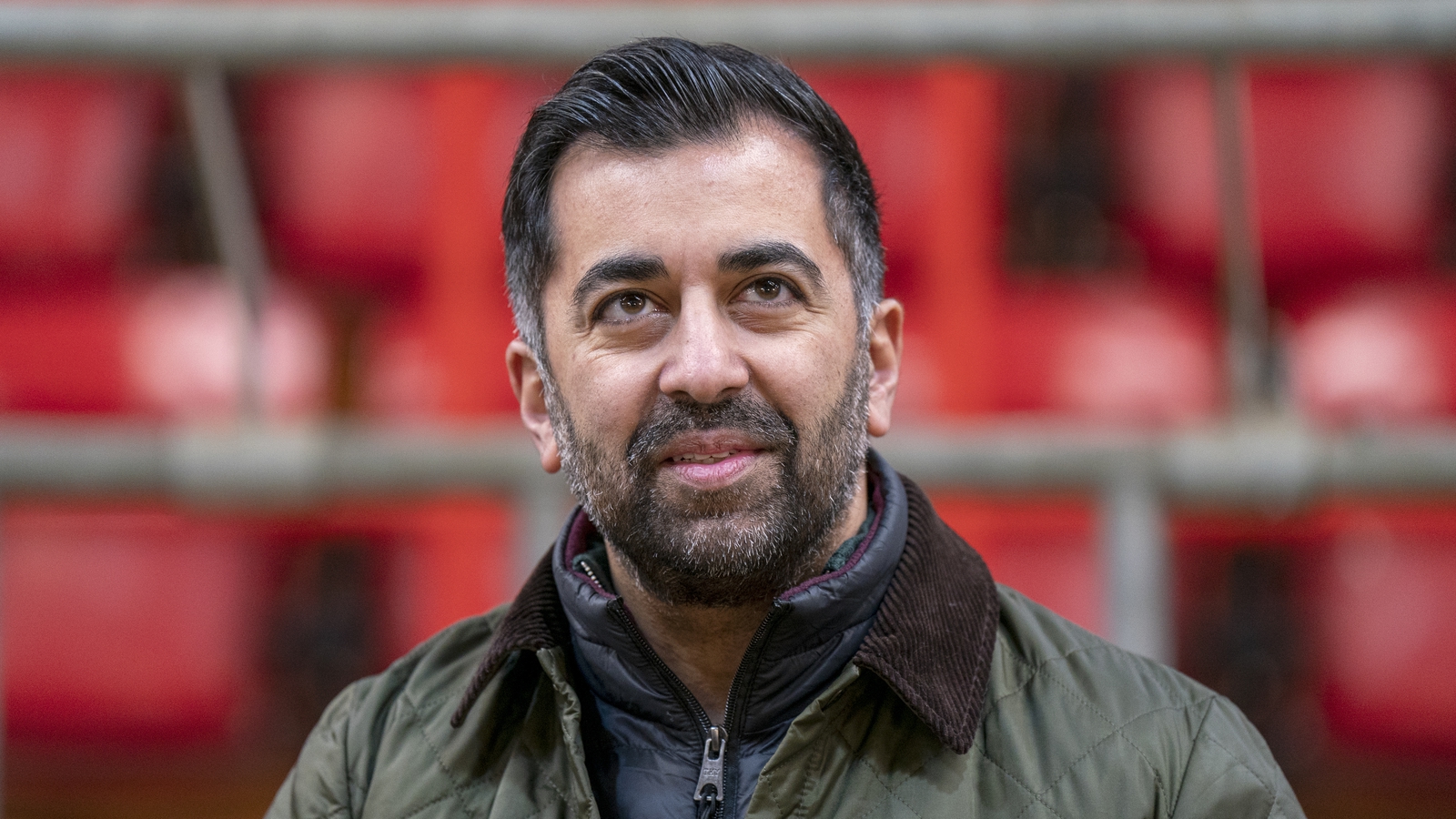EU backs €1.4bn Russian frozen asset plan to aid Ukraine
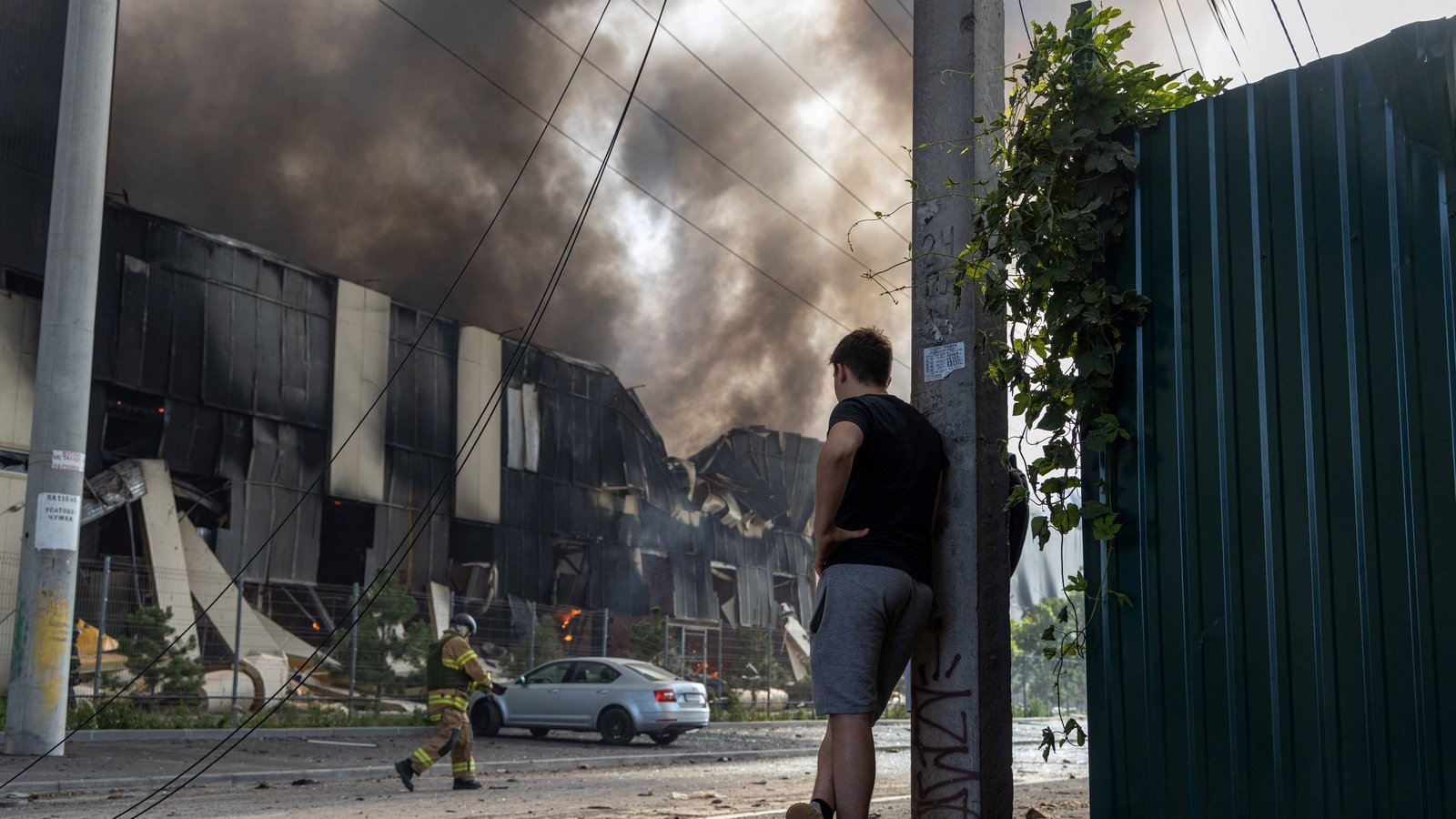
European Union governments agreed to use €1.4 billion in profits from Russian frozen assets for weapons and other aid to Ukraine, prompting Hungary to accuse fellow EU members of a “shameless” rule breach to bypass its objections.
EU members had already decided in May to use profits from the assets frozen in the EU to help Ukraine, with 90% of funds earmarked for military aid.
However, Hungary has been holding up approval of the necessary legal measures, diplomats claimed.
Hungary maintains warmer relations with Russia than any other EU country.
It does not give arms to Ukraine and Hungarian Prime Minister Viktor Orbán has criticised other EU and NATO members for doing so, claiming they are fuelling the war.
At a meeting of EU foreign ministers in Luxembourg, chief diplomat Josep Borrell said the usual unanimity for foreign policy decisions was not needed as Hungary had opted out of previous decisions underpinning the scheme.
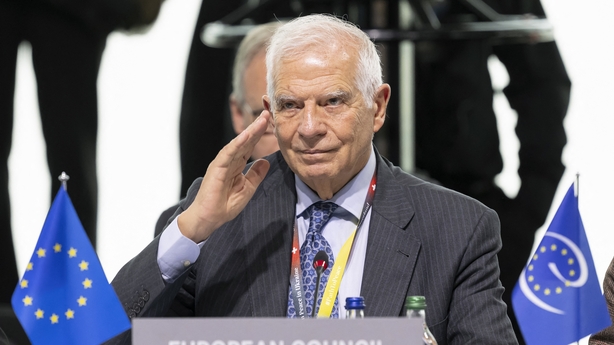
“We will now speed up, without having this blockage,” Mr Borrell told reporters after the meeting.
He said €1.4bn in windfall profits would be available in the coming month and another €1bn by the end of the year.
The funds would be used to help Ukraine with air defence, ammunition and support for Ukrainian industry, Mr Borrell added.
EU governments in a military aid committee backed the plan and ministers at the Luxembourg meeting also supported it, diplomats said.
Hungarian Foreign Minister Péter Szijjártó said little as Mr Borrell laid out the plan, they said.
However, Mr Szijjártó was much more vocal on Facebook.
“This is a clear red line, there was no example of such a shameless breach of common European rules before,” he said.
“Obviously, our colleagues in Brussels, our EU legal team is examining the possibility of a legal way to seek justice for Hungary,” said Mr Szijjártó, whose government takes over the rotating presidency of the 27-member EU in a week’s time.
With the first tranche of proceeds from the frozen assets due soon, EU officials had been urgently exploring ways to bypass Hungary’s objections and ensure the money could swiftly help Ukraine.
“I cannot have this money in my pocket – this money is for military support to Ukraine,” Mr Borrell told reporters.
The EU’s plan for the immediate use of profits from frozen Russian assets is separate from a decision by G7 leaders this month to use future proceeds to fund $50bn (€47bn) in loans to Ukraine.
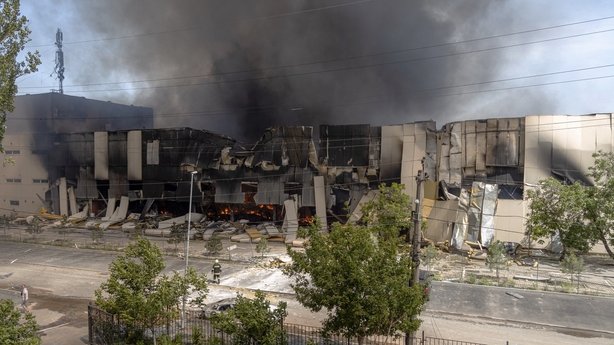
Russian strike in east Ukraine kills five, wounds 41, says official
Russian strikes on the eastern Ukrainian town of Pokrovsk have killed five people and wounded dozens more, the regional governor has said.
Moscow over recent weeks has concentrated its firepower on the eastern industrial region of Donetsk, which the Kremlin claims is part of Russia.
“Among the wounded are two children aged 12 and 13. They are in a moderate to serious condition,” the region’s governor Vadym Filashkin said on social media.
Mr Filashkin said Russian forces had fired two Iskander-M missiles at Pokrovsk destroying and damaging several homes. The town had a pre-war population of around 61,000.
“This is one of the largest hostile attacks on civilians in recent times. Its final consequences are yet to be determined,” he added.
Mr Filashkin separately said that a 62-year-old man was killed in a Russian attack on the town of Kurakhove further south.
“The Russians dropped a guided aerial missile on the town, and an infrastructure facility was damaged,” he said, without elaborating.
Russia claimed to have annexed Donetsk along with three other partially-occupied regions of Ukraine in late 2022. It has been controlled in parts by Kremlin-backed separatists since 2014.
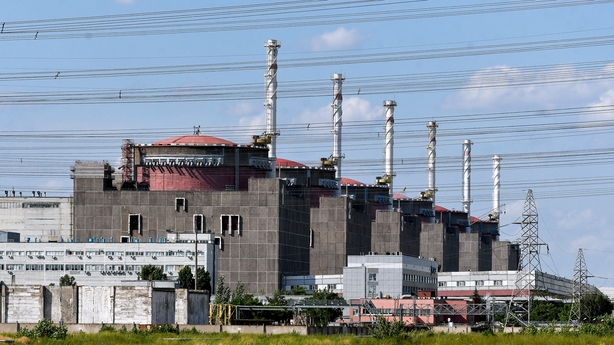
EU adopts new sanctions against Russia over Ukraine war
The European Union has adopted a 14th package of sanctions on Russia that aims to close some circumvention loopholes and hits Russia’s gas exports for the first time, EU foreign affairs ministers said in a statement.
The package will also add 116 entities and individuals to the sanctions list bringing, the total to more than 2,200.
The new restrictions on gas aim to reduce Russia’s revenues from liquefied natural gas (LNG) exports by banning trans-shipments off EU ports and a clause allowing Sweden and Finland to cancel some LNG contracts.
The measures stop short of an EU ban on LNG imports, which have risen since the start of the war.
The sanctions will take effect after a nine-month transition period. The package also prohibits new investments and services to complete LNG projects under construction in Russia.
Some central European countries still receive pipeline gas from Russia via Ukraine. The EU banned Russian oil imports in 2022 with some limited exemptions.
The new package aims to limit circumvention by creating more responsibility and penalties at member state level for those found flouting the regulations.
EU countries are now debating a package that would better align sanctions against Belarus that predate Moscow’s invasion of Ukraine with the ones targeting Russia since 2022.
Belarus has been a major loophole for goods reaching Russia, but members have been reluctant to tackle this issue over concerns around Belarus’ major fertiliser exports.
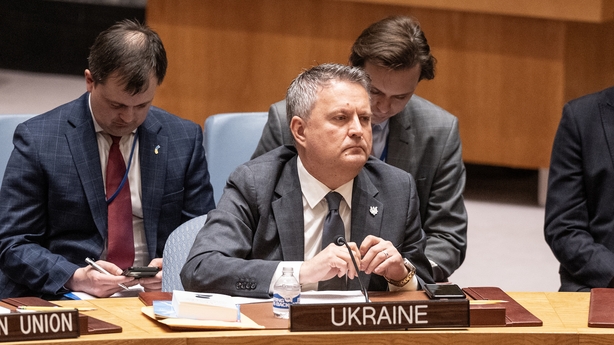
IAEA urges halt to attacks near Ukrainian nuclear plant
Meanwhile, the UN’s nuclear watchdog called for a halt to attacks on Enerhodar, a town near the Russian-occupied Zaporizhzhia nuclear power station after drone strikes this week hit two electricity substations serving the area.
The plant’s Russian-installed officials accused Ukraine of staging two drone strikes that destroyed one substation, damaged another and cut power to residents for a time.
Rafael Grossi, director general of the International Atomic Energy Agency, made no reference to Ukraine and said the incidents had no effect on the Zaporizhzhia plant’s operations.
However, he said the attacks had to stop.
“Whoever is behind this, it must stop. Drone usage against the plant and its vicinity is becoming increasingly more frequent,” Mr Grossi said in a statement on the IAEA website.
“This is completely unacceptable, and it runs counter to the safety pillars and concrete principles which have been accepted unanimously,” he added.
Power had been cut to Enerhodar, a few kilometres from the plant, for 16 hours, he said. Neither of the attacks had any impact on the powerlines that the nuclear plant uses to keep operating.
The Zaporizhzhia plant’s Russia-installed management said some “infrastructure facilities” including the transport department and print shop experienced disruptions, but that nuclear safety measures remained fully operational.
Ukrainian officials have made no comment on the incidents and Reuters could not independently confirm the reports





